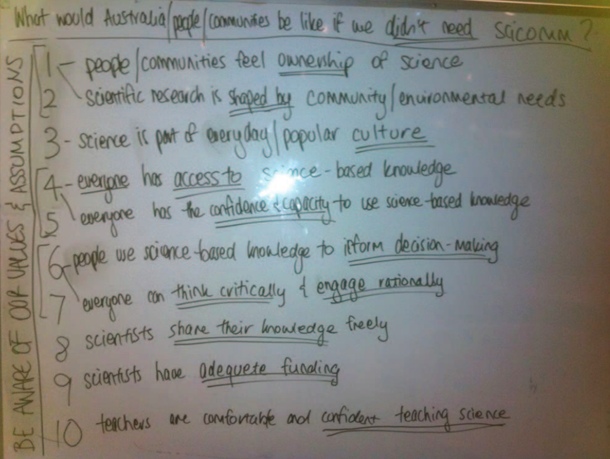Session will look at:
* What participatory science communication is, and why it has the power to create change
* Case studies of participatory science communication – long term and short term – to see what works or not (including at least one citizen science example)
* Barriers for participatory science communication, especially institutional will and resources, and opportunities to overcome these
* Roles for science communicators, scientists and other publics
Presenters
Jenni Metcalfe, Director, Econnect Communication
Jennifer Manyweathers, Post Doctoral Research Fellow in Biosecurity, Graham Centre for Agricultural Innovation, Charles Sturt University and NSW Department of Primary Industry
Michelle Riedlinger, University of Fraser Valley, Canada
Rod Kennett, Senior Manager for STEM Content, Questacon
Anne Leitch, Adjunct researcher / casual senior editor, Griffith University / NatureResearch
When: Tuesday 18th February, 2:00pm-3:30pm
Where: Room G02, Learning and Teaching Building, 19 Ancora Imparo Way, Clayton
Hashtag: TBC



















